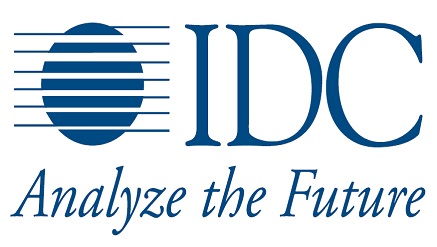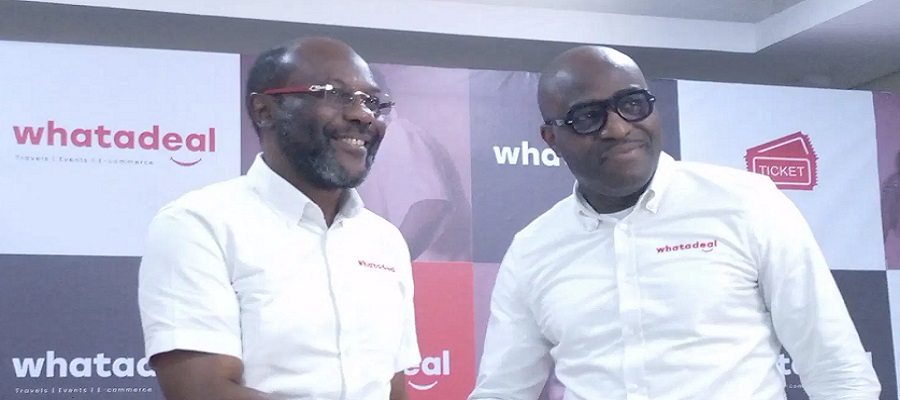E-Business
Apple Tops Samsung, Others on Global Tablet YoY Shipments in 4Q2014

Worldwide tablet shipments recorded a year-over-year decline for the first time since the market’s inception in 2010, however, Apple topped the likes of Samsung, Lenovo, among others
Overall shipments for tablets and 2-in-1 devices reached 76.1 million in the fourth quarter of 2014 (4Q14) for -3.2% growth, according to preliminary data from the International Data Corporation (IDC) Worldwide Quarterly Tablet Tracker.
Although, the fourth quarter witnessed a decline in the global market, shipments for the full year 2014 increased 4.4% totaling 229.6 million units.
“The tablet market is still very top heavy in the sense that it relies mostly on Apple and Samsung to carry the market forward each year,” said Jitesh Ubrani, senior research analyst, Worldwide Quarterly Tablet Tracker.
Ubrani added, “Although Apple expanded its iPad lineup by keeping around older models and offering a lower entry price point of $249, it still wasn’t enough to spur iPad sales given the excitement around the launch of the new iPhones. Meanwhile, Samsung’s struggles continued as low-cost vendors are quickly proving that mid- to high-priced Android tablets simply aren’t cut out for today’s tablet market.”
Apple’s lead over other vendors has yet to be truly challenged as it shipped 21.4 million tablets, accounting for over a quarter of the market with 28.1% volume share.
Despite Samsung’s woes, it managed to hold on to the second place with 11 million units shipped.
Lenovo (4.8%), ASUS (4%), and Amazon (2.3%) rounded out the top 5 although only Lenovo managed to grow annually when compared to Q4 2013. Lenovo maintained its tight grip on the Asia/Pacific market thanks to its massive scale in the PC business and the success of its low-cost tablet offerings.
“Despite an apparent slow-down of the market, we maintain our forecast about tablet growth in 2015,” said Jean Philippe Bouchard, Research Director, Tablets. “Microsoft’s new OS, a general shift towards larger screen form factor and productivity focused solutions, and technology innovations such as gesture interface that could be introduced in tablets will help the market maintain positive growth in 2015.”
Tablet Vendor Highlights
Apple’s efforts to maintain iPad momentum have fallen flat so far as the latest generation of the iPad Air and mini offer very minimalistic upgrades over their previous versions.
Cannibalization at the bottom from the iPhone and at the top from the Mac appear to be a serious issue for the iPad.
Samsung was able to achieve its goal of 40 million tablets in 2014, up 1.1% from 2013.
Samsung’s Tab 4 series has been well received and its recent announcement to focus on mid-high tier tablets should help the bottom line though market share will likely continue to struggle.
Lenovo’s portfolio depth is ideal. The vendor covers most screen sizes on both Android and Windows, allowing Lenovo to capture benefits of end users’ shift towards larger screen sizes and productivity in general.
While still niche, the AnyPen technology introduced at CES should become of feature spotlight of Lenovo’s product roadmap in 2015.
Asus’ T100 was quite well received during at its initial launch during holiday season 2013.
Though the T100 was still a top performer this quarter, it was met with stiff competition from other low-cost vendors.
Asus recently expanded its Transformer lineup with the launch of three new “Chi” 2-in1’s, which are expected to be available this month.
Amazon recorded the steepest annual volume decline among the top five vendors.
Despite a product refresh at the end of September with their Kindle Fire HDX 8.9, and the introduction of a low-end 6-inch Fire HD (excluded from our numbers given the small screen size does not match IDC’s definition of a tablet) and 7-inch Fire HD, holiday sales declined nearly -70% compared to last year.
E-Business
Africa’s Data Workers are Being Exploited by Foreign Tech Firms – Report

Data workers in Africa often have a hard time, according to a report published in theconversation.com, a nonprofit, independent news organization dedicated to unlocking the knowledge of experts for the public good.

The article by Mohammad Amir Anwar, senior lecturer in African Studies and International Development, University of Edinburgh, found that data workers in Africa face job insecurities – including temporary contracts, low pay, arbitrary dismissal and worker surveillance – and alarming physical and psychological health risks.
The consequences of their work can include exhaustion, burnout, mental health strain, chronic stress, vertigo and weakening of eyesight.
Data work includes text prediction, image and video annotation, speech to text validation and content moderation.
The world of data work is built on labour arbitrage – exploiting the fact that workers earn less and have less protection in some countries than in others.
Large technology firms often outsource this work to the global south, including African countries like Kenya, Uganda and Madagascar, and also India and Venezuela.
The result is complex production networks that are generally opaque and shrouded in secrecy.
Workers and researchers have issued many warnings about data workers’ health.
Despite numerous court cases in multiple jurisdictions, nothing much has been done to address these issues either by tech companies or by regulators.
Still, the news of the death of a Nigerian content moderator, Ladi Anzaki Olubunmi, who was found dead in her apartment in Nairobi, Kenya on 7 March 2025, came as a shock.
While the circumstances of her death are still unclear, it has renewed calls for wider systemic change.
Her death has sparked condemnation from the Kenyan Union of Gig Workers, which demanded an investigation.
Since 2015, we have been studying the central role of African data workers in building and maintaining artificial intelligence (AI) systems, acting as “data janitors”.
Our research found that companies rarely acknowledge the use of human workers in AI value chains, thus they remain “hidden” from the public eye. In other words, the world of AI is built on the toil of human workers most people are unaware of.
In this article, we outline key steps needed to protect these data workers in Africa.
They include business process outsourcing regulations, ensuring quality rather than quantity of jobs, and providing social protection. There is also a need to name and shame companies that maltreat data workers.
Data work needs tighter regulation.
Regulation
Business process outsourcing is the practice of procuring various processes or operations from external suppliers or vendors.
Firms that do this are sometimes trying to evade local regulations (like minimum wages) and responsibility towards workers’ welfare (via sub-contracting and the use of temporary employment agencies).
This is happening in Africa as some data training firms and digital labour platforms circumvent local labour laws.
But there is more to the story.
Data work is also seen by lawmakers and practitioners as a solution to the rampant unemployment and informality across Africa.
African governments have actively created regulatory environments that enable these practices to thrive, despite adverse outcomes for workers.
Nonetheless, new regulations have been proposed lately, like the Kenyan government’s Business Law (Amendment) Bill, 2024 targeting the wider business process outsourcing and IT-enabled services sector.
Particularly, it makes business process outsourcing firms responsible for any claim raised by employees. It ensures some accountability for firms bringing data work to Africa.
Other governments should follow with similar measures ensuring worker rights are enforceable. Some data workers are hired on contracts as short as five days and get paid less than the local minimum wage.
Firms found violating labour standards should be penalised.
In fact, there is an urgent need to create regional or continent-wide regulatory frameworks covering the business process outsourcing sector, limiting the space for firms to exploit workers.
It’s possible, however, that jobs might be lost as firms relocate to places with favourable laws, an everyday reality in the outsourcing networks.
Quality, not quantity
African governments should prioritise the quality of jobs and not quantity. Policymakers should think about wider national economic development plans, particularly structural diversification and upgrading of their economies.
Historically, these strategies have resulted in success in some states, addressing social and economic issues such as unemployment, poverty and inequality.
Another option for African governments is to enhance social protection among data workers.
Financing this is a serious issue, so proper taxation and compliance among workers and employers is urgently needed.
Finally, there is a role for naming and shaming firms that treat their data workers poorly. There is evidence that such efforts improve compliance and firms’ behaviour.
Worker movements
African data workers have taken risks in openly speaking about their experiences.
But these kinds of approaches work well when combined with collective bargaining.
Workers have historically won their labour and civil rights after long and hard-fought struggles.
There is a long history of African worker movements and trade unions resisting the apartheid and colonial regimes across the continent.
While the freedom of association is enshrined in the African Charter on Human and Peoples’ Rights and most governments have legislation committed to collective bargaining, it is rarely implemented in the new outsourcing sectors, particularly data work.
It is also difficult to organise workers in the industry, because of the high churn rate. For instance, data training firms like Sama offer short-term contracts to employees, often as short as five days.
Some firms are hostile to workers’ organising activities.
But numerous data worker-led associations have emerged in Africa recently, some led by the co-authors of this article.
Techworker Community Africa, African Tech Workers Rising, African Content Moderators Unions and Data Labelers Association are among them.
These initiatives are crucial to ensure workers have decent remuneration, work-life balance, adequate working hours, protection against arbitrary dismissal, safe working environments, and contributions towards their health and welfare.
Several high-profile court cases are currently being pursued by African data workers against Meta and Sama.
There is precedent. In 2021. Meta was ordered by a Californian court to pay US$85 million to 10,000 content moderators.
AI-dependent tools such as ChatGPT or driverless cars would not exist without African data workers. They are tired of being “hidden”. They deserve to be treated with respect and dignity.
Mophat Okinyi, Kauna Malgwi, Sonia Kgomo and Richard Mathenge co-authored this article.
E-Business
NIMC Says NIN Mandatory to Government Loans

National Identity Management Commission (NIMC) said the National Identification Number (NIN) is a mandatory requirement for securing government loans.

NIMC said on its social media platform that the identity number has become compulsory for Bank of Industry (BOI) loans.
NIMC said, “Enroll for your NIN today to access business aid and other opportunities from the Bank of Industry.
“To access the services of the Bank of Industry (BOI), enroll for the NIN.”
Recall that the federal government, through the Federal Ministry of Industry, Trade, and Investment (FMITI), established three funds totaling N200bn to support businesses across Nigeria.
The fund will be accessed at nine per cent interest, to be disbursed by the Bank of Industry (BOI).
The funds established by the government were the Presidential Conditional Grant Scheme (PCGS), the FGN MSME Intervention Fund, and the FGN Manufacturing Sector Fund.
The government appointed BOI as the executing agency for the funds and is empowered with the responsibility for their day-to-day administration.
“The Presidential Conditional Grant Scheme (PCGS) is a N50bn grant scheme to support eligible Nano Business owners. The grant will be disbursed to a minimum of 1,000 beneficiaries, especially women and youths, per Local Government Area (LGA) in the 774 LGAs across the nation and the six Council Areas in the FCT.
“The target Nano businesses include traders, food vendors, ICT businesses, transporters, artisans, and creatives, among others,” said Dr. Olasupo Olusi, managing director/chief executive officer, BOI.
E-Business
SystemSpecs’s Subsidiary Deelaa Becomes Whatadeal

SystemSpecs Holdings Ltd unveiled at the weekend the rebranding of its subsidiary Deelaa to Whatadeal, launching an ambitious digital commerce platform poised to transform travel, events, and e-commerce across Africa.

John Obaro, group managing director, SystemSpecs, and Fela Bank-Olemoh, managing director of Whatadeal
The announcement comes amid a surging demand for integrated digital services in Nigeria and beyond, as the continent’s e-commerce and travel sector stand on the cusp of exponential growth.
The launch event, held in Lagos, demonstrated SystemSpecs’ vision for a seamless, value-centric consumer experience.
This strategic rebrand follows the company’s acquisition of Knit Technologies, amalgamating cutting-edge innovation and industry expertise into Whatadeal—one of four subsidiaries under the SystemSpecs umbrella.
John Obaro, group managing director, SystemSpecs, emphasized that the transformation reflects an unwavering commitment to technological advancement and customer empowerment.
“Whatadeal transcends a mere rebranding—it embodies a dynamic ecosystem designed to deliver unparalleled value and memorable experiences,” Obaro told reporters.
He elaborated, “Our ambition is to ensure that whether you’re organizing an event, procuring tickets, or seeking the finest deals, Whatadeal is your definitive destination. We are also in advanced discussions with leading travel industry players to curate exceptional travel experiences across Nigeria.”
Originally introduced in 2022 as an e-ticketing and marketplace platform, Deelaa catered to both businesses and consumers.
Its evolution into Whatadeal responds to shifting market dynamics, offering an integrated solution for booking flights, securing event tickets, and shopping online.
The platform will be powered by Remita, SystemSpecs’ acclaimed electronic payment and collection system, which underpinned Nigeria’s Treasury Single Account initiative—one of the most extensive implementations of its kind in Africa.
Steering this venture is Fela Bank-Olemoh, managing director of Whatadeal and a SystemSpecs stalwart since 1998.
With over two decades of expertise spanning technology, marketing, and public service, Bank-Olemoh brings a formidable pedigree to the role.
He founded MediaVision Limited, a preeminent sports marketing firm in Nigeria, before serving as Special Adviser on Education to the Lagos State Governor from 2015 to 2019 and later as Senior Special Assistant on Education Interventions to Nigeria’s President from 2019 to 2023.
Bank-Olemoh articulated the platform’s ethos: “At Whatadeal, we hold that exceptional experiences and valuable offers should be effortless, not convoluted. Our mission extends beyond merely facilitating deals—we are cultivating an ecosystem that nurtures engagement, trust, and enduring value for our customers.”
He added, “Whether you’re arranging travel, acquiring event tickets, or purchasing essentials, you deserve an intuitive, rewarding experience that consistently delivers excellence. Whatadeal is dedicated to realizing that vision.”
SystemSpecs aims to establish Whatadeal as the preeminent one-stop platform for African consumers, blending convenience with competitive offerings.
With its fusion of Knit Technologies’ innovations and Remita’s robust infrastructure, Whatadeal is poised to redefine digital commerce on the continent.

 Telecom3 days ago
Telecom3 days agoMTN, Lynk Global Make Africa’s First Satellite-to-Mobile Call

 Broadcasting2 days ago
Broadcasting2 days agoDStv Revenue Plunges as MultiChoice Loses Nearly 4m Subscribers

 E-Business3 days ago
E-Business3 days agoSystemSpecs’s Subsidiary Deelaa Becomes Whatadeal

 E-Financial3 days ago
E-Financial3 days agoNigeria Gets Fresh $500m World Bank Loan for Economic Stimulus Programme

 General News3 days ago
General News3 days agoSERAP Asks National Assembly to Drop Bill to Jail Nigerians who Fail to Vote

 E-Financial3 days ago
E-Financial3 days agoUninsured Depositors of Heritage Bank to Receive Liquidation Dividends In April – NDIC

 Telecom3 days ago
Telecom3 days ago15-Year-Old Autistic Artist, Kanye, to Unveil World’s Largest Art Canvas on Autism Awareness Day

 Telecom3 days ago
Telecom3 days agoSmart Treasure Investment Team’s Initiatives Eradicate Poverty, Says Aminu



























